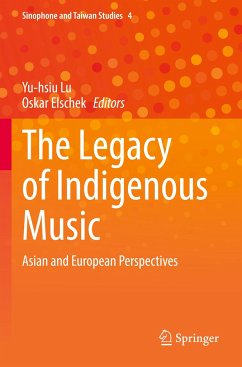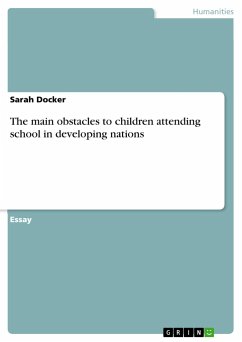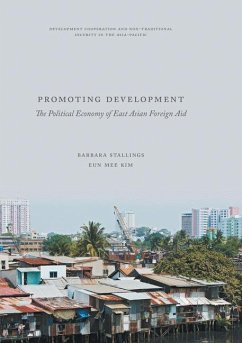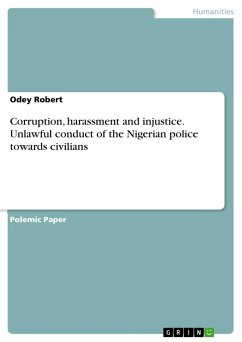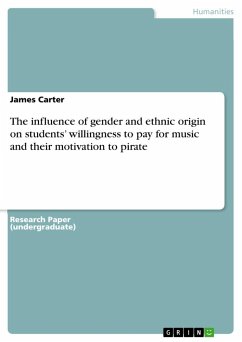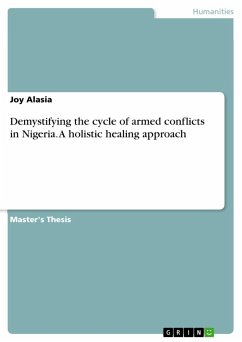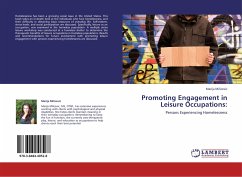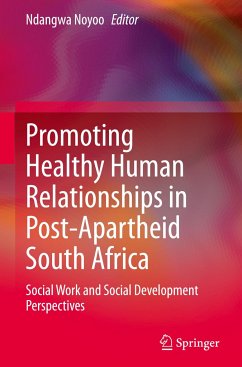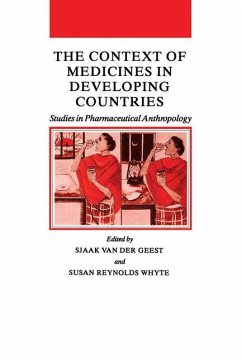
The Imperative of Promoting, Developing and Sustaining Indigenous Music in Nigeria
Towards Sustaining Indigeous Music

PAYBACK Punkte
0 °P sammeln!
Scientific Essay from the year 2017 in the subject Sociology - Media, Art, Music, Ebonyi State University (New Frontier Ind. Research and Publications Int'l, Makurdi, Benue, Nigeria), language: English, abstract: Until very recently, Nigerian indigenous music was silenced by its Western counterpart, following westernisation, globalisation and attrition. Music is cultural. And all Nigerian cultures have their respective music. Despite the recent promotion, development and sustenance bids of several artists, scholars and concerned authorities, the teeming Nigerian masses are yet to be roused tow...
Scientific Essay from the year 2017 in the subject Sociology - Media, Art, Music, Ebonyi State University (New Frontier Ind. Research and Publications Int'l, Makurdi, Benue, Nigeria), language: English, abstract: Until very recently, Nigerian indigenous music was silenced by its Western counterpart, following westernisation, globalisation and attrition. Music is cultural. And all Nigerian cultures have their respective music. Despite the recent promotion, development and sustenance bids of several artists, scholars and concerned authorities, the teeming Nigerian masses are yet to be roused towards and properly educated, sensitised and re-oriented on and towards indigenous music. It is against the above backdrop that this study has emerged to call for a change in these regards. The paper maintains that it is imperative to properly, constantly and adequately promote, develop and sustain our indigenous music so as to project our indigenous music, create a place for it in the globalised Western hostile village, and allow for culture continuity and national development. Music unites people(s) and allows for the showcasing of cultural identity, ethos and aesthetics. Therefore, to duly tap from the potentials/prospects of indigenous music, it is imperative to incessantly promote, develop and sustain indigenous music in Nigeria and beyond. This study is anchored on music and indigenous wholistic theories that are most suitable for it, following its nature and pursuit. It relied on both primary and secondary sources of data collection. Oral interview, participant and non-participant observation, and induction formed the oral sources, while textual library materials like journals, textbooks, etc. formed the written, secondary, sources. The qualitative approach and the descriptive methods were employed.Keywords: Imperative, Indigenous music, Developing, Promoting, Sustaining





